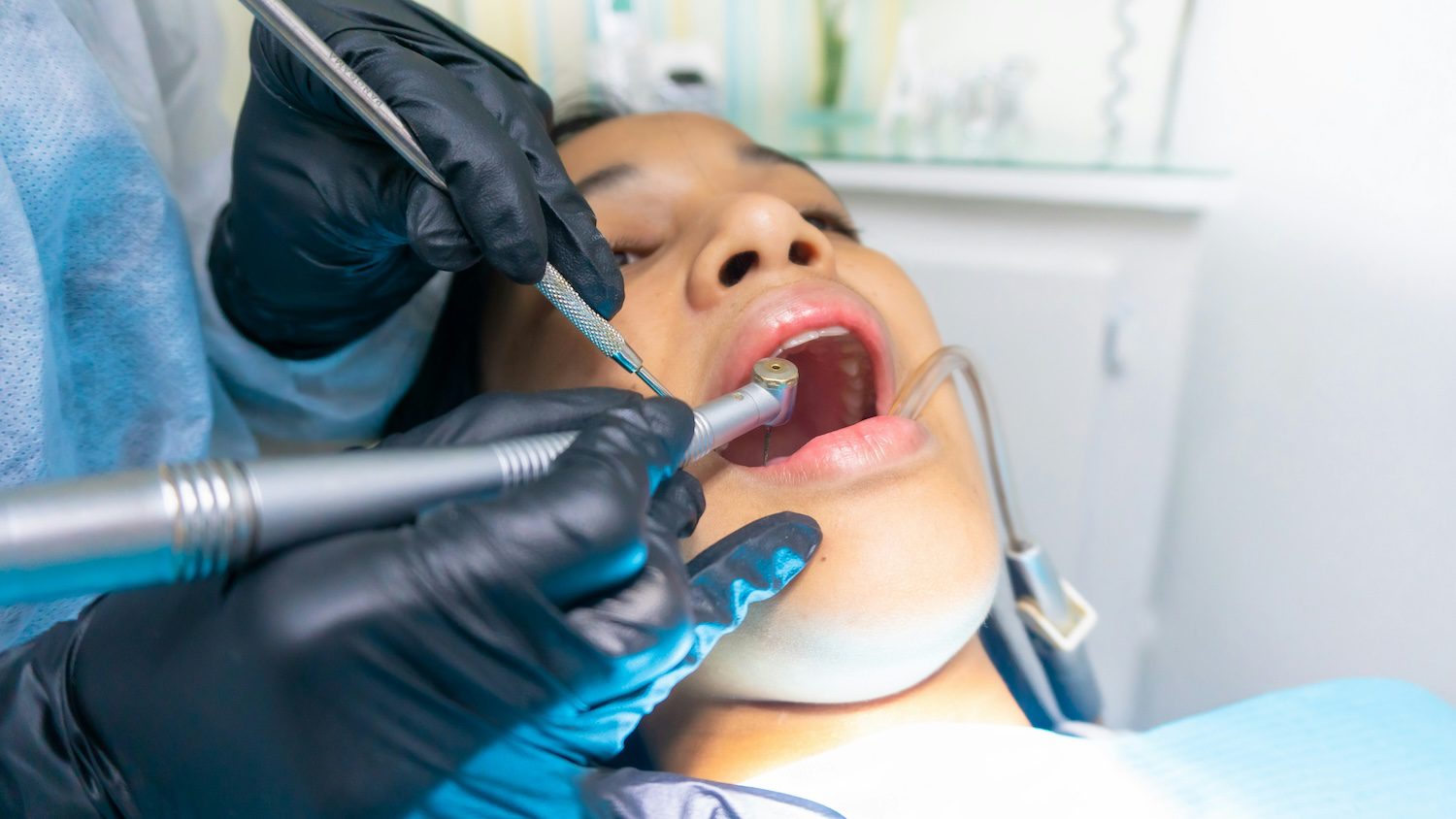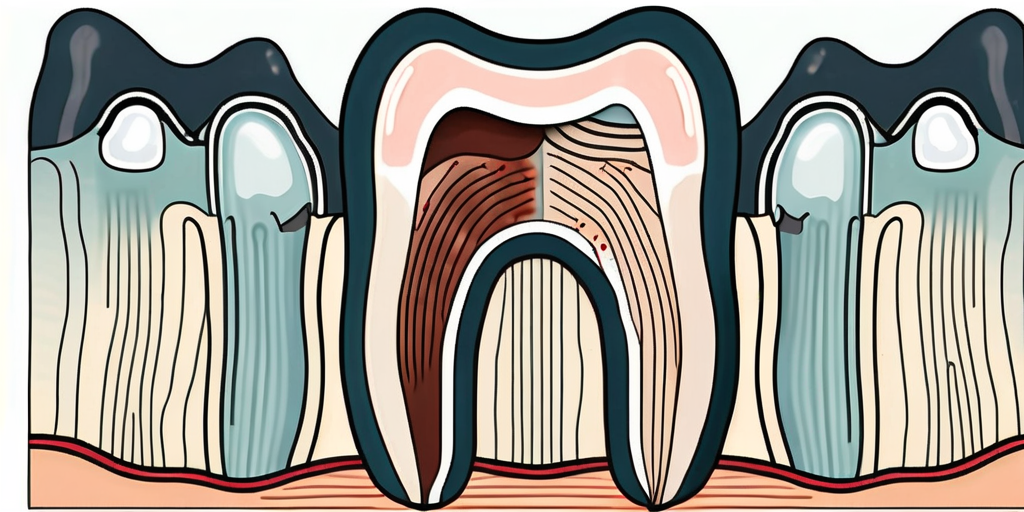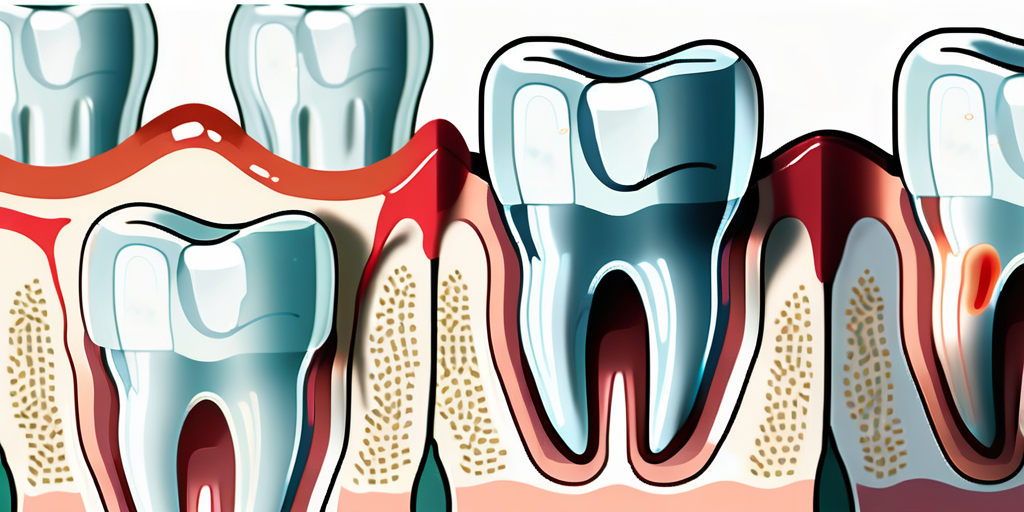
An abscessed tooth can cause significant pain and discomfort. It is important to understand the signs and symptoms associated with this condition in order to seek appropriate dental treatment. This article will provide an overview of an abscessed tooth, how to identify its signs and the importance of early detection.
An abscessed tooth occurs when a pocket of pus forms around the root of a tooth. This happens as a result of a bacterial infection. The infection can spread from the tooth to the surrounding bone and tissues if left untreated.

An abscessed tooth is a serious dental condition that requires prompt attention from a dentist. If left untreated, the infection can lead to more severe complications, such as the spread of infection to other parts of the body. In some cases, an abscessed tooth can even result in the loss of the tooth itself.
An abscessed tooth is a dental infection that forms at the root of a tooth. It is typically caused by tooth decay, trauma to the tooth, or gum disease. The infection leads to the formation of a pocket of pus, which can cause severe pain.
When an abscessed tooth is not treated promptly, the infection can cause swelling in the face or cheek, a persistent bad taste in the mouth, and even fever. It is essential to seek dental treatment as soon as possible to prevent the infection from spreading further.
The most common causes of an abscessed tooth include untreated tooth decay, trauma to the tooth, and gum disease. Poor oral hygiene and a weakened immune system can also increase the likelihood of developing an abscessed tooth.
It is important to maintain good oral hygiene practices, such as brushing and flossing regularly, to prevent tooth decay and gum disease, which can lead to an abscessed tooth. Regular dental check-ups are also crucial in detecting and treating any dental issues before they escalate into more serious problems.
Recognizing the signs of an abscessed tooth is crucial for timely intervention and treatment. The following are some common physical signs and pain indicators:
When dealing with an abscessed tooth, it is essential to understand the underlying causes and potential complications associated with this dental issue. An abscessed tooth typically occurs when a bacterial infection leads to the formation of a pocket of pus in the tooth or gums. This infection can result from untreated tooth decay, gum disease, or a dental injury. If left untreated, an abscessed tooth can lead to serious complications, such as the spread of infection to other parts of the body.
Swelling of the face, particularly around the affected tooth, is a common physical sign of an abscessed tooth. Additionally, you may notice redness and tenderness in the gums near the infected tooth. It is crucial to address these physical signs promptly to prevent the infection from worsening and causing more severe complications.
Furthermore, in some cases, an abscessed tooth may lead to the development of a dental fistula, also known as a gum boil. A dental fistula is a small channel that forms between the abscess and the surface of the gums, allowing the pus to drain out. This drainage can result in a foul taste in the mouth and bad breath. If you notice any drainage from a gum boil, it is important to seek dental treatment immediately to prevent the infection from spreading further.
A severe, throbbing toothache is one of the hallmark symptoms of an abscessed tooth. The pain may radiate to the jaw, ear, or neck. Sensitivity to hot and cold temperatures, as well as pressure on the tooth, is also commonly reported. It is crucial not to ignore these pain indicators, as they can signify a serious underlying issue that requires professional dental care.
In addition to physical signs and pain, an abscessed tooth can cause various symptoms that affect both oral health and general well-being:

Bad breath, an unpleasant taste in the mouth, and pus discharge from the affected tooth are common oral symptoms of an abscessed tooth. Chewing or biting down on the affected tooth may also cause pain.
An abscessed tooth can have systemic effects on the body. Fever, facial swelling, swollen lymph nodes in the neck, and general malaise can be indicative of a spreading infection. In severe cases, the infection can even lead to difficulty swallowing or breathing.
It is important to note that an abscessed tooth is not just a localized oral issue; it can have far-reaching consequences if left untreated. The infection from the abscess can spread to other parts of the body through the bloodstream, leading to potentially life-threatening complications. This is why prompt dental treatment is crucial in preventing the infection from worsening and causing more serious health problems.
Furthermore, the pain and discomfort associated with an abscessed tooth can significantly impact a person's quality of life. Simple tasks such as eating, speaking, and even sleeping can become challenging due to the persistent throbbing pain and swelling. The psychological toll of dealing with chronic dental pain should not be underestimated, as it can cause stress, anxiety, and a decreased ability to focus on daily activities.
Early detection of an abscessed tooth can prevent the infection from spreading and causing more serious health complications. Here are some risks of leaving an abscessed tooth untreated:

If left untreated, an abscessed tooth can lead to the formation of a tooth abscess, which is a collection of pus enclosed in the jawbone. This can cause bone loss and the need for invasive dental procedures such as root canal treatment or tooth extraction.
On the other hand, early diagnosis and treatment of an abscessed tooth can help preserve the affected tooth, prevent the infection from spreading, and alleviate pain and discomfort efficiently and effectively. Seeking prompt dental care is crucial.
It is essential to understand that an abscessed tooth is not just a dental issue; it can have far-reaching consequences on your overall health. The bacteria from the abscess can enter the bloodstream and potentially lead to systemic infections, affecting vital organs in the body.
Moreover, delaying treatment for an abscessed tooth can result in severe complications, such as the formation of a dental cyst. A dental cyst is a fluid-filled sac that develops in the jawbone and can cause further damage if not addressed promptly by a dental professional.
If you suspect that you have an abscessed tooth, it is important to seek professional help from a dentist. The dentist will assess your oral health, diagnose the condition, and recommend the most appropriate treatment plan.
An abscessed tooth is a serious dental condition that occurs when a pocket of pus forms around the root of an infected tooth. This can be extremely painful and may lead to further complications if left untreated. It is crucial to address the issue promptly to prevent the infection from spreading to other parts of the mouth or body.
If you experience persistent toothache, facial swelling, or any other symptoms associated with an abscessed tooth, it is essential to make an appointment with a dentist as soon as possible. Do not delay seeking treatment, as this can worsen the infection or lead to complications.
In addition to the common symptoms mentioned, you may also notice a bad taste in your mouth, fever, swollen lymph nodes in your neck, or difficulty swallowing. These signs indicate a more severe infection that requires immediate attention from a dental professional.
During your dental visit, the dentist will conduct a thorough examination of your teeth, gums, and mouth. They may also take dental X-rays to assess the extent of the infection. Based on the findings, the dentist will recommend a suitable course of treatment, which may include antibiotics, a root canal procedure, or tooth extraction.
It is important to follow the dentist's recommendations and complete the full course of treatment to ensure that the infection is fully eradicated. Failure to do so may result in the abscess returning or spreading to other teeth.
In conclusion, an abscessed tooth can cause severe pain and discomfort. The signs and symptoms associated with this condition should not be ignored. Early detection and prompt dental intervention are essential for preserving oral health and preventing complications. If you suspect that you have an abscessed tooth, seek professional help from a dentist without delay.
If you're experiencing any of the symptoms of an abscessed tooth, don't wait for the condition to worsen. Yes Dental is here to provide you with the personalized and expert care you need. Led by the experienced Dr. Puja Gumber, our team at Yes Dental is committed to delivering top-tier dental services to the Rouse Hill community. Book your appointment today and take the first step towards a healthier smile and peace of mind.








